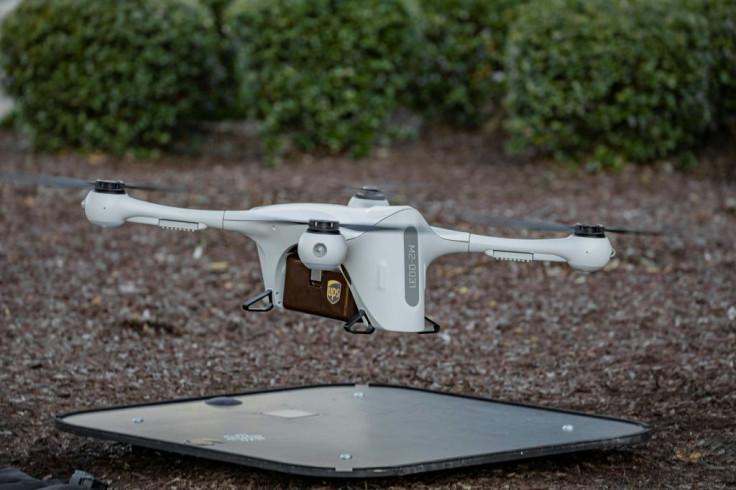Drone Technology: StoreDot Unveils Fast-Charging Technology To Make Autonomous Delivery Economically Feasible

KEY POINTS
- Current recharging methods take 60 to 90 minutes
- The system would mean drones can spend more time flying
- Amazon first brought up the idea of drone deliveries six years ago
An Israeli company has unveiled technology it says can fully recharge a drone in 5 minutes, eliminating the major barrier to making fully autonomous drone operation possible.
Battery technology firm StoreDot, in cooperation with BP, said Wednesday it can reduce recharging times from an hour or more to just 5 minutes and eliminate the need for a person to be involved in the process.
“Drones will now be able to spend much more of their valuable flight time engaged in actual missions, greatly extending their range, rather than having to return to base to have their battery swapped out,” StoreDot CEO Doron Myersdorf said in a press release. “At the same time, [ultra-fast charging] will also enable drone users to expand their operations into regions they could not previously access.”
Myersdorf said the ultra-fast charging technology reduces flight time only slightly and is priced competitively with existing systems. Test cells already are available with full commercialization expected by the end of the year.
The highest quality drones can stay in the air for 30 minutes, according to 3dinsider. Cheaper models fly for as little as 5 or 10 minutes before needing a recharge. Operators of services like commercial mapping generally work with plenty of replacement batteries on hand.
“In applications where cutting response times is critical, and where organizations must also demonstrate a commitment to reducing their carbon footprint, the use of drones can play a crucial role in helping to establish a competitive advantage,” Myersdorf said.
StoreDot’s FlashBattery technology uses proprietary compounds and nano-materials to enhance electro-chemical processes. Last year, the company showed a two-wheeled vehicle could be fully charged in 5 minutes.
Major companies like Amazon and UPS have been experimenting with drone delivery. UPS has gained Federal Aviation Administration certification for its fleet. Amazon kicked off interest in the delivery method six years ago.
IEEE Spectrum predicted wider adoption of the technology this year with the implementation of rules that require aircraft to broadcast their positions by radio so drones can avoid collisions. The FAA still is developing a system to track the devices separately from aircraft so that air traffic controllers are not overwhelmed.
© Copyright IBTimes 2025. All rights reserved.





















